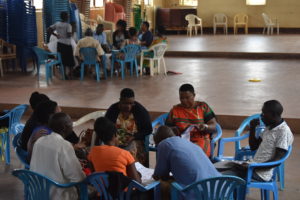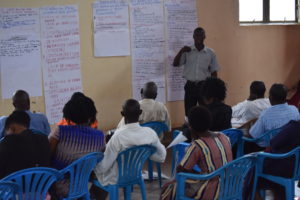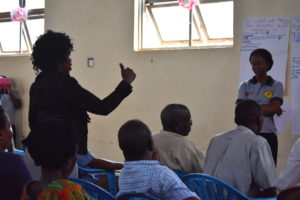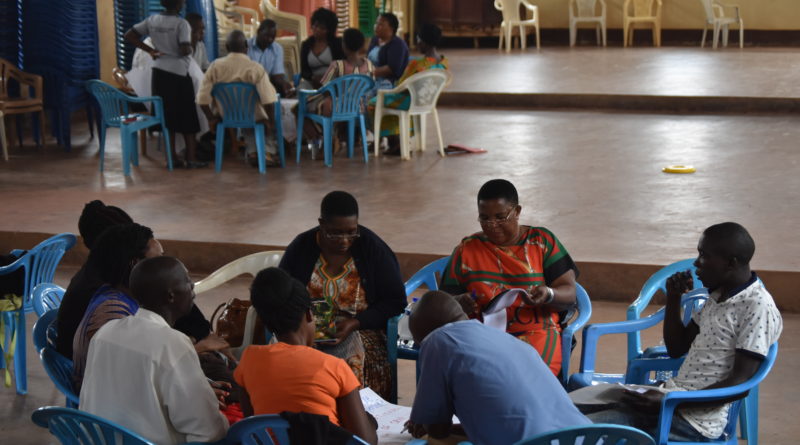How are multiple actors identifying and discussing the main problems affecting their community? Insights from the Transition Management process in Kawala community, Kampala (Uganda)
Sixteen participants belonging to Kawaala community participated in the first Transition Management arena with the aim to define the most urgent and priority problems in their communities. The participants arrived on time and shared since the beginning of the meeting their motivation to participate. Most of the participants already knew the T-GroUP research team since it has been disseminating its research findings in the community and some researchers participated in some of the meetings organized at community level. The dissemination of information and the continuous engagement of the researchers at community level played a key role in building trust with the community residents and in creating a comfortable atmosphere during the Transition Arena meeting. After an introduction given by the local team coordinator Prof. Robinah Kulabako, the participants discussed in two groups the most important problems in Kawala community.

Participants voiced the following as the main challenges affecting their community: lack of water supply, insecurity, inadequate sanitation facilities, poor infrastructures (e.g. roads and houses), contamination and scarcity of water, unemployment and poor waste management services. Then, participants in each group were invited to discuss the causes of these problems as well as the reasons of persistence. Multiple causes of the problems described above were discussed, such as the low awareness of the residents on how to build proper sanitation facilities or how to collect waste, the corruption and political tensions in the different sectors, and the lack of consultation and participation of local residents in decision-making processes run by local authorities. A representative from each group very enthusiastically presented the main points discussed in their group, as shown in the following picture.

The other participants actively participated in this last part of the meeting by asking questions, sharing their point of view and adding other examples connected to their experiences. One of the highlight of the meeting is that political tensions should be taken into account in the multi-stakeholder process because they are one of the causes of failure of many projects and initiatives in Kampala. The engagement, participation and collaboration with local authorities like Kampala Capital City Authority (KCCA) and public utility companies like the National Water and Sewerage Corporation (NWSC) is key for the development of new practices, cultures and policies related to water, sanitation and waste management. Additionally, the unsustainable behavior and practices of local residents regarding water, waste and sanitation management needs to be taken into account and innovative ways of engaging and sensitizing citizens need to be explored.


